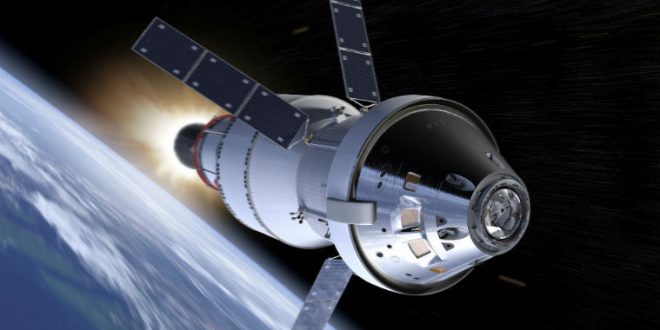President Donald Trump has a vision for the federal government’s budget in 2018, and — among other nicks and cuts to NASA’s projects — it does not include any money for the agency’s equal-parts-bold-and-weird Asteroid Redirect Mission (ARM).
Trump’s budget cuts $102 million from the nearly $2 billion NASA spent in 2017 on earth science and global warming research. The White House also proposed cutting the Asteroid Redirect Mission (ARM), which could have cost a total of $17.7 billion dollars by 2025.
The budget cuts four NASA satellite programs which were conducting global warming and environmental research. It also reduces the amount of money the space agency can spend on environmental science grants.
In total, Trump recommends a NASA budget of $19.1 billion, an 0.8 percent cut from 2017 levels.
“The Budget increases cooperation with industry through the use of public-private partnerships, focuses the Nation’s efforts on deep space exploration rather than Earth-centric research, and develops technologies that would help achieve US. space goals and benefit the economy,” states a budget summary.
Experts have long suspected Trump’s space agenda will fund exploration with robotic probes and, later, send humans to Mars with money diverted from NASA’s global warming science programs. The money saved will be transferred to deep space exploration and planetary science missions.
Under the new budget, NASA plans to accelerate plans to put U.S. astronauts to lunar orbit in 2019 and send a manned mission to Mars in 16 years. Trump previously requested NASA plan to return U.S. astronauts to the moon potentially by 2020 and go on to Mars soon after, according to leaked internal documents. The budget provides $3.7 billion for the development of the Space Launch System Mars rocket and capsule.
This directly contrasts with Obama’s NASA budgets, which repeatedly tried to slash space exploration funding and redirect it to environmental research. Obama increased NASA’s budget for environmental programs by 63 percent at the expense of its exploration budget.
ARM was the biggest outright cancellation, but was not unexpected, as NASA published a request for aerospace contractors in August to save the ARM by accepting private sector-provided payloads and technical expertise. House Republicans and much of NASA questioned the rationale behind redirecting a harmless asteroid to orbit the moon.
Dr. Richard Binzel, a planetary scientist at the Massachusetts Institute of Technology (MIT), presented a scathing takedown of ARM. Binzel called it a “dead end,” “not a science mission,” and even said it would destroy NASA’s Planetary Science Division.
Agencies/Canadajournal
 Canada Journal – News of the World Articles and videos to bring you the biggest Canadian news stories from across the country every day
Canada Journal – News of the World Articles and videos to bring you the biggest Canadian news stories from across the country every day



